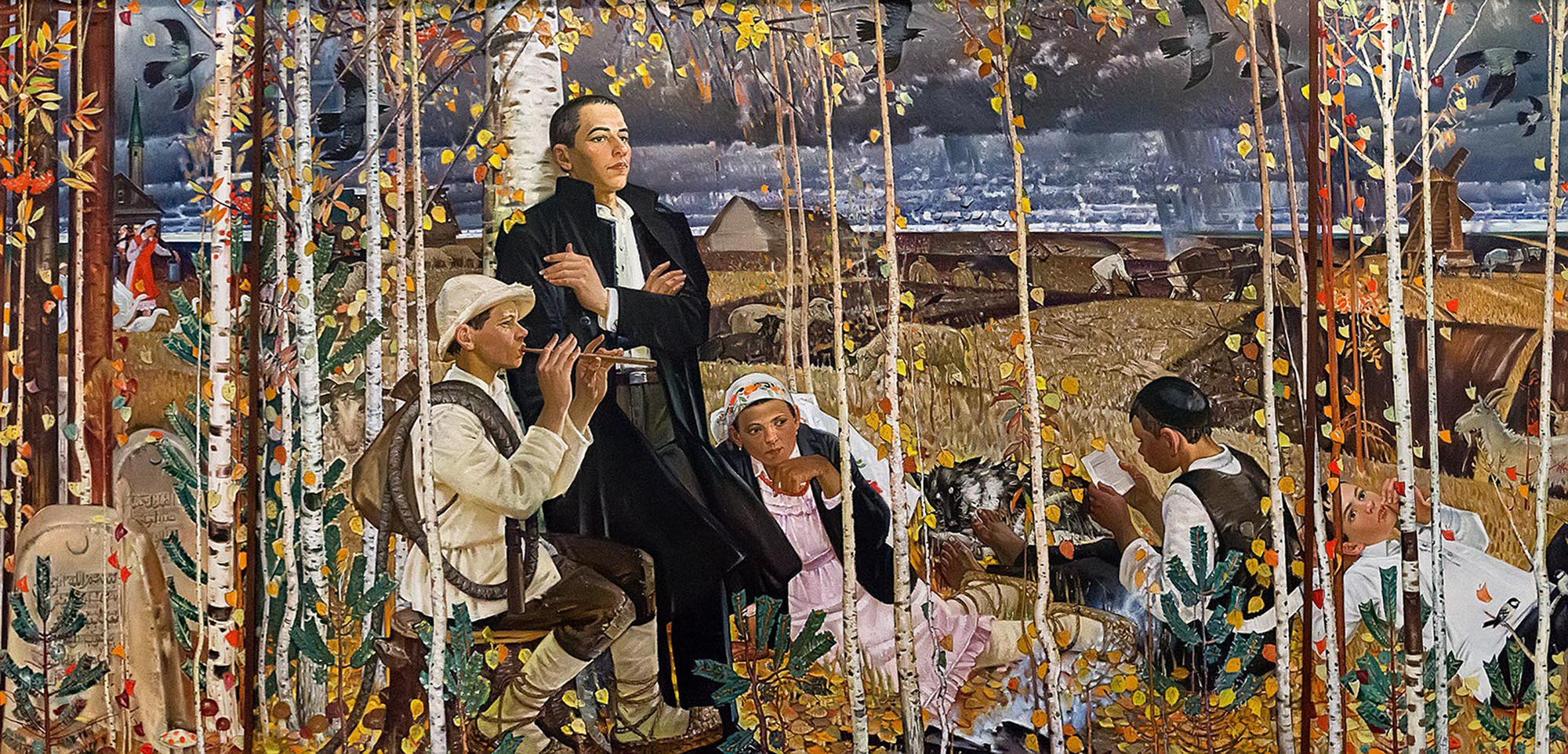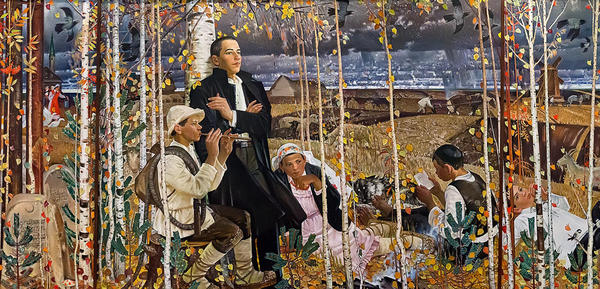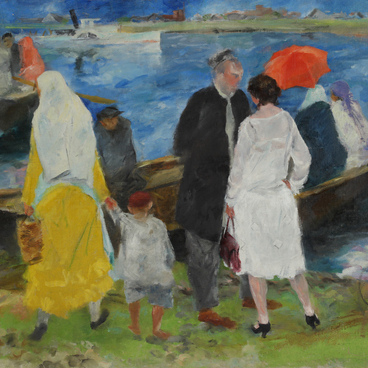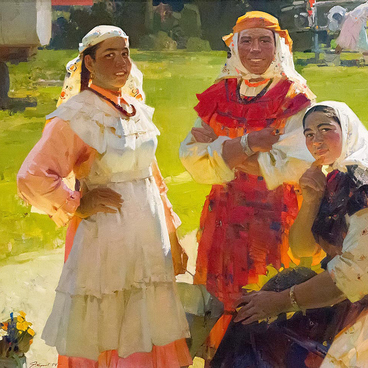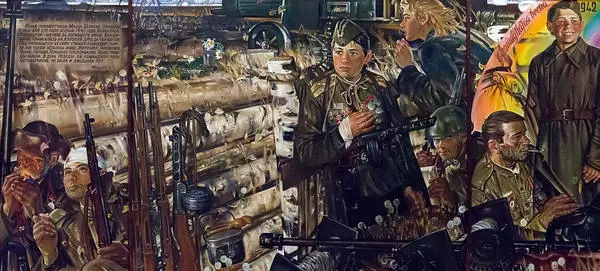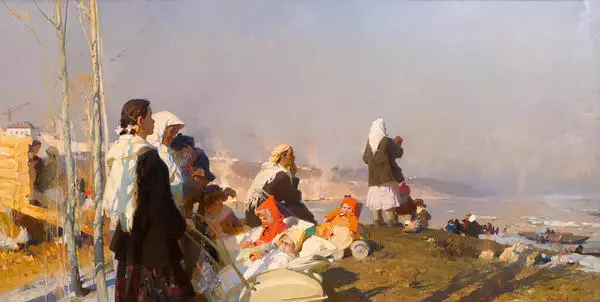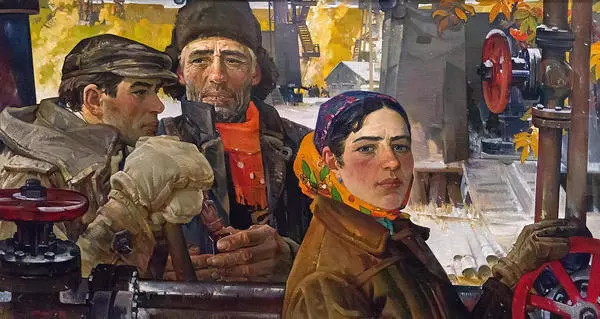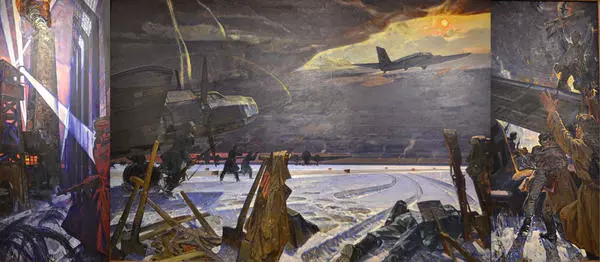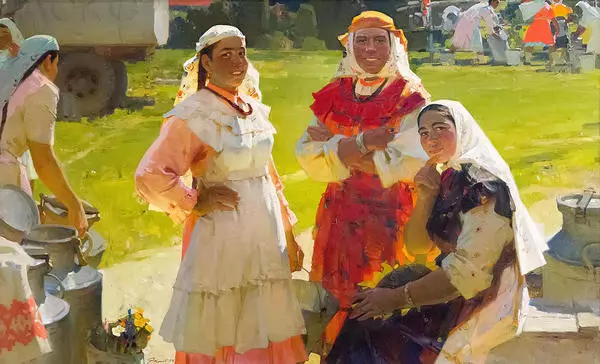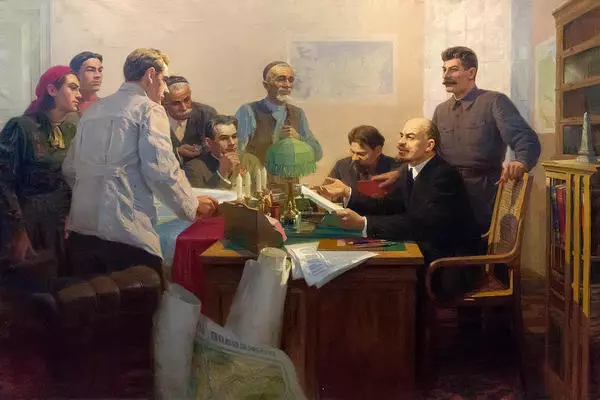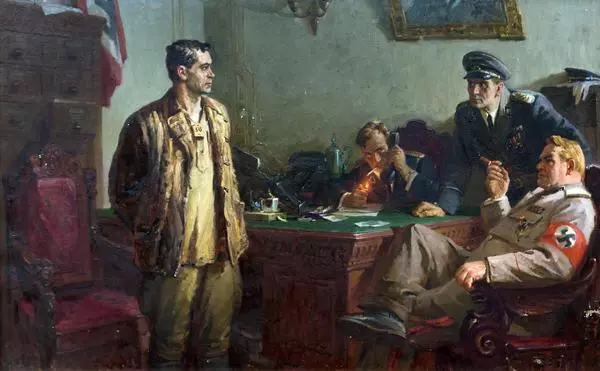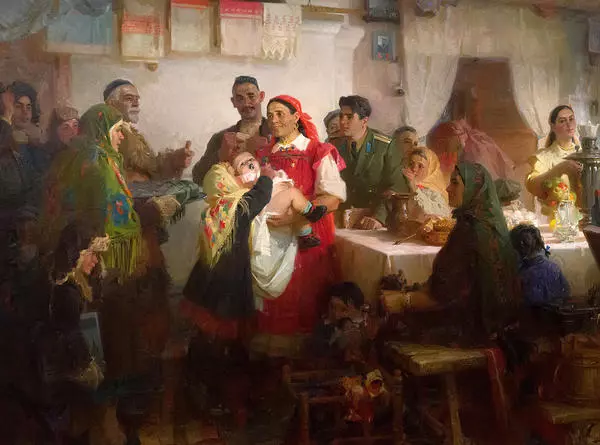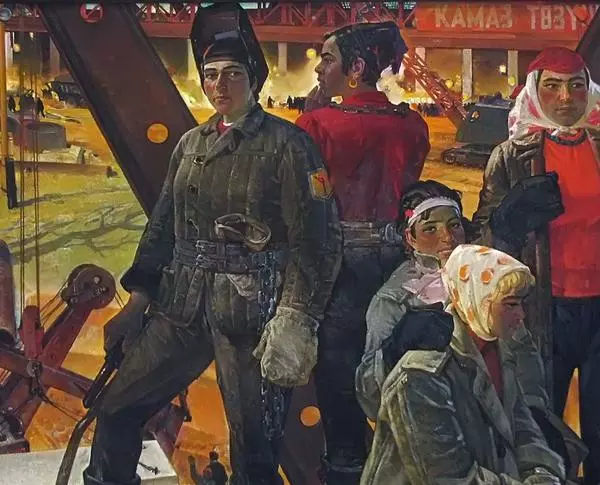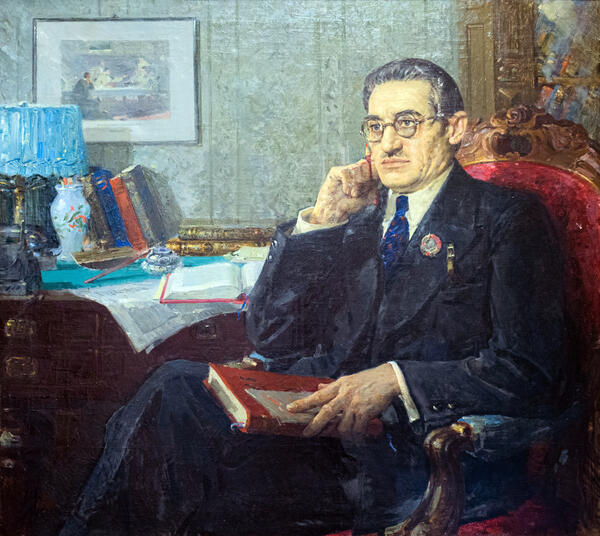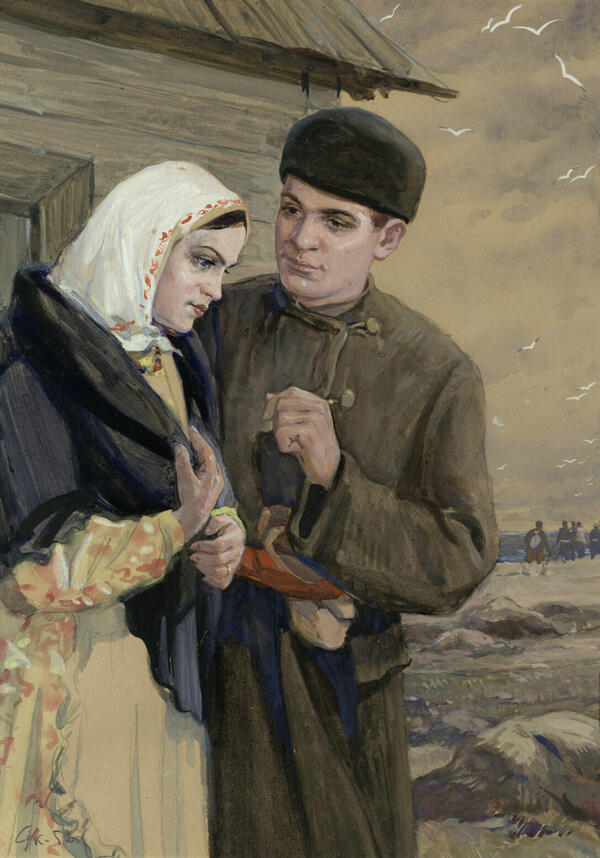Haris Yakupov had for a long time been dreaming of a canvas painting dedicated to eminent Tatar poet Gabdulla Tukay. In 1986, at the Kazan exhibition marking the 100th anniversary of Tukay’s birth, he presented a composition in three parts with allegorical depiction of the poet’s life path. The right section of the triptych is dedicated to Tukay’s childhood, the middle section centers around the figure of the poet at the period of his literary maturity, while the left one illustrates his last shelter. Despite an obvious presence of death, the artist managed to lend a light and high atmosphere to the picture. The autumn nature that is fading and the characters in the picture co-exist in unity. The poet has distanced himself from the world around him; his expression is thoughtful and marked with sadness. The state of nature with low, heavy clouds in the pre-stormy sky and the falling leaves adds an emphasis to this mood. All the features mentioned above highlight Tukay to be deeply connected to his native land.
During his short life, Tukay managed to earn the recognition by the Tatar people who praised him as high as they did Shakespeare in England and Pushkin in Russia. He had a difficult childhood; at the age of four he was orphaned and was taken in to the family of his grandfather, a Mullah, where he didn’t enjoy love. He was ill a great deal of time there, had very little food to eat, and, being an extra ‘mouth to feed’, was given to the adoptive parents at the first possibility, according to Tukay’s memoirs, a new family for him was found right there in the market place.
His moving to Kazakhstan marked a turning point in his life; there he began to study at a madrasah and in parallel, he was learning the Russian language. The discoveries of Pushkin and Lermontov’s lyrics had greatly impressed him. He was also interested in gathering the Tatar folk songs and fairy tales; he did it in an earnest approach performing them masterfully by himself. The collection of the Tatar folklore, the Russian poetry of the 19th century, and the Turkish and Persian lyrics alongside the Tatar enlightenment prose of the new type had become a point of reference for the beginning writer.
Revolutionary events of 1905 were perceived by him as a celebration and a source of inspiration; the revolution had awakened in him a feeling of national identity. At this time, there appeared the first newspapers and magazines in the Tatar language. Tukai began to be actively printed in them and quickly became a professional writer. In his publications he exposed the failures of the Tatar clergy, advocated the secular education, and called for the unity of the people.
In 1911-1912 Tukay made several trips to Astrakhan, Ufa and Petersburg, where he met the important writers, public figures and revolutionaries. The poet died of malnutrition and consumption before he reached the age of 27. Before his death, he left money and bequeathed them to set up an award for gifted children.
During his short life, Tukay managed to earn the recognition by the Tatar people who praised him as high as they did Shakespeare in England and Pushkin in Russia. He had a difficult childhood; at the age of four he was orphaned and was taken in to the family of his grandfather, a Mullah, where he didn’t enjoy love. He was ill a great deal of time there, had very little food to eat, and, being an extra ‘mouth to feed’, was given to the adoptive parents at the first possibility, according to Tukay’s memoirs, a new family for him was found right there in the market place.
His moving to Kazakhstan marked a turning point in his life; there he began to study at a madrasah and in parallel, he was learning the Russian language. The discoveries of Pushkin and Lermontov’s lyrics had greatly impressed him. He was also interested in gathering the Tatar folk songs and fairy tales; he did it in an earnest approach performing them masterfully by himself. The collection of the Tatar folklore, the Russian poetry of the 19th century, and the Turkish and Persian lyrics alongside the Tatar enlightenment prose of the new type had become a point of reference for the beginning writer.
Revolutionary events of 1905 were perceived by him as a celebration and a source of inspiration; the revolution had awakened in him a feeling of national identity. At this time, there appeared the first newspapers and magazines in the Tatar language. Tukai began to be actively printed in them and quickly became a professional writer. In his publications he exposed the failures of the Tatar clergy, advocated the secular education, and called for the unity of the people.
In 1911-1912 Tukay made several trips to Astrakhan, Ufa and Petersburg, where he met the important writers, public figures and revolutionaries. The poet died of malnutrition and consumption before he reached the age of 27. Before his death, he left money and bequeathed them to set up an award for gifted children.
